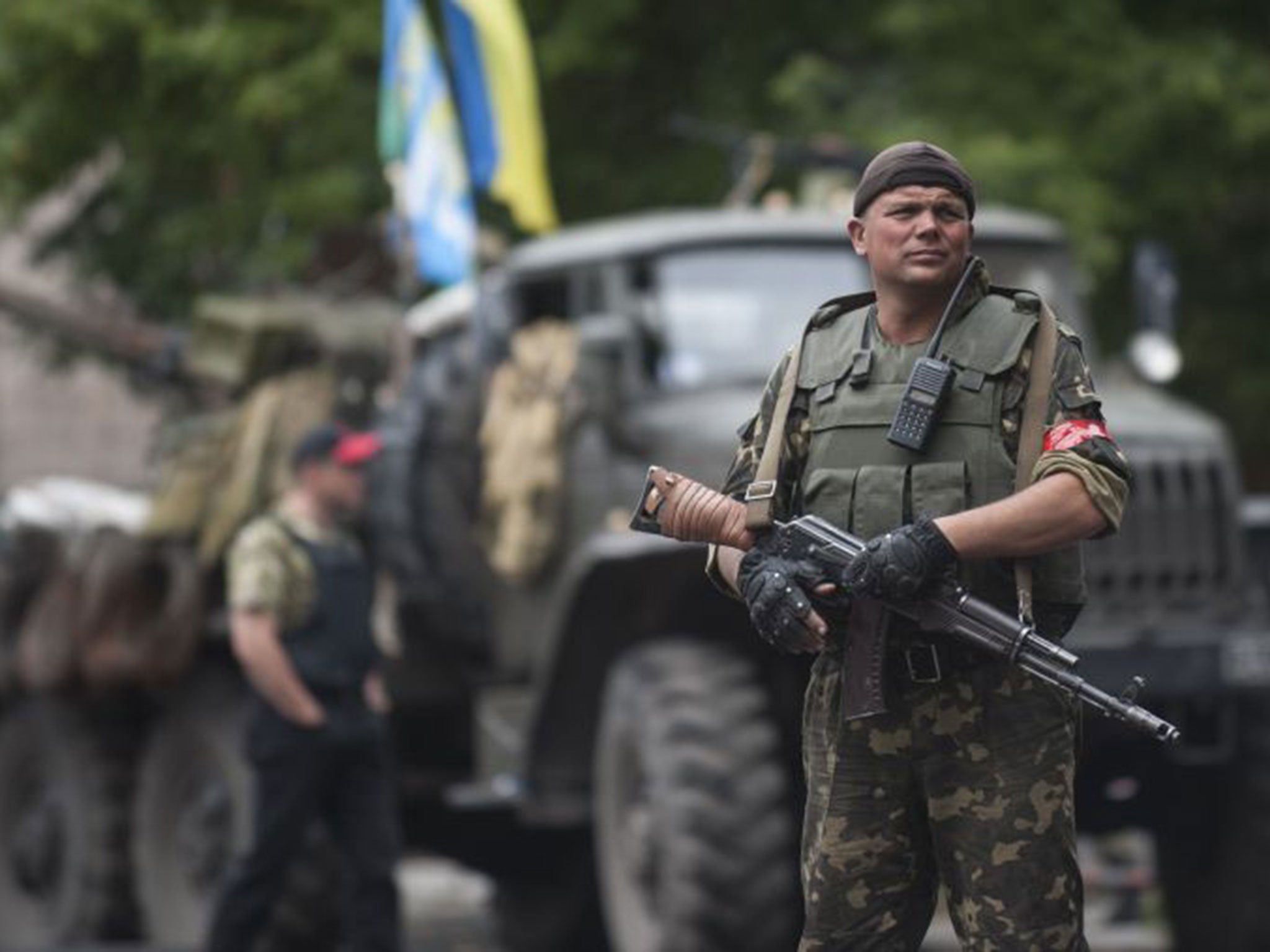Ukrainian partisans are settling in for the long haul
Diplomatic Channels: Volunteers and arms have continued to flow in across the border, with Moscow’s acquiescence

Your support helps us to tell the story
From reproductive rights to climate change to Big Tech, The Independent is on the ground when the story is developing. Whether it's investigating the financials of Elon Musk's pro-Trump PAC or producing our latest documentary, 'The A Word', which shines a light on the American women fighting for reproductive rights, we know how important it is to parse out the facts from the messaging.
At such a critical moment in US history, we need reporters on the ground. Your donation allows us to keep sending journalists to speak to both sides of the story.
The Independent is trusted by Americans across the entire political spectrum. And unlike many other quality news outlets, we choose not to lock Americans out of our reporting and analysis with paywalls. We believe quality journalism should be available to everyone, paid for by those who can afford it.
Your support makes all the difference.Aleksandr and his comrades suddenly disappeared one day from Slovyansk. They went off to be partisans in the woods in a campaign against the Ukrainian government which, he held, would take around five years.
This was in the middle of May, when Kiev’s forces were doing poorly in their offensive; separatists were on the march with the flag of the Donetsk Peoples’ Republic being hoisted in a spreading swathe of towns and cities, and Russian troops were still gathered across the frontier.
Aleksandr and his group, all ex-servicemen, were among the best trained, armed and experienced in the rebel ranks. Their headquarters were in Slovyansk’s main police station, where a formidable armoury had been established behind the barricades. While the city’s “Peoples Mayor” Vyacheslav Ponomarev and his cohorts took hostages and celebrated the supposed liberation of Donbass, these fighters, tough and realistic, were preparing for the long war to come.
Ukraine’s newly elected president, Petro Poroshenko, has hailed the capture of Slovyansk, and the cities of Artemivsk and Kostyantynivka, as a turning point. Many in Kiev are looking forward to a comprehensive victory in the east after the humiliating loss of Crimea to the Kremlin. That, however, may not be an easy matter.
The public statements from the rebels have been of “tactical withdrawals” and “regrouping”; but there have also been acknowledgment of “mistakes made in the past” of being “outgunned and outmanned” and the claim that, such was the government firepower, staying on in Slovyansk meant “ we will be exterminated in a week, two weeks at most”.
The last statement was from Igor Strelkov, who, according to the US as well as the Ukrainian administration, is a member of Russian military intelligence with a hotline to the Kremlin and the Svengali of militant separatism. Mr Strelkov also maintained: “Russia does not want to help [Russians in Ukraine] to be reunited with their people.”
In reality, “volunteers” and arms have continued to flow in across the border, with the acquiescence if not the active involvement of Moscow. The rebels remain well supplied and the re-taking of Donetsk and Luhansk, the other main city under their control, would be far harder for the Ukrainian forces. They would have to desist, for example, from carrying out heavy artillery bombardments unless they are prepared to accept significant civilian casualties.
Yesterday three bridges leading into Donetsk were destroyed ahead of the expected government offensive. Ukrainian troops and armour have faced repeated ambushes and we can expect to see this form of insurgency for a long time to come from the likes of Aleksandr and his colleagues.
The separatists have, as some of them admit, made major mistakes, with their masked gunmen often engaged in criminality and their self-proclaimed leaders behaving in an authoritarian fashion.
But the fact remains that the reason the uprising took place was because so many in the east of the country had become so alienated from Kiev and continue to be so.
That is the problem President Poroshenko needs to address: an army of occupation and punitive measures, as some in the Kiev administration want, are not the answers.
Subscribe to Independent Premium to bookmark this article
Want to bookmark your favourite articles and stories to read or reference later? Start your Independent Premium subscription today.
Join our commenting forum
Join thought-provoking conversations, follow other Independent readers and see their replies
Comments